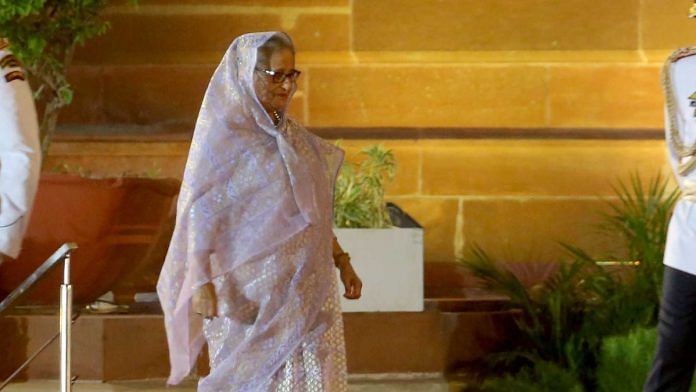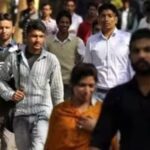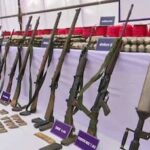Immediately after the proscription, the Election Commission also suspended the party’s registration – a prerequisite for taking part in national elections.
It is indeed ironic that the previous political party to was Jamaat-e-Islami, a religious party that politically opposed Bangladesh’s independence in 1971. Some of its leaders allegedly headed para-military groups that helped occupation forces during Bangladesh’s Liberation War.
The issue of banning the Awami League had come to the fore immediately after Bangladesh’s , but the interim government shied away from handling it for a long time.
This reluctance was driven by several factors: the Awami League’s crucial role in leading Bangladesh’s independence movement, alleged pressure from some members of the army, and the absence of consensus among the country’s major political actors on an issue that’ll irreversibly change the country’s political landscape.
The real question, now, is this: Who will fill the gap in Bangladesh’s Centre-Left politics?
The biggest beneficiary of the ban, perhaps, will be the (NCP). Hasnat Abdullah, one of NCP’s leaders, urged people to outside Muhammad Yunus’ residence in downtown Dhaka and demand a ban on the Awami League. People overwhelmingly responded to his call, and after a few days of peaceful demonstration, the demand was met.
The NCP has all the abilities to fill the vacuum that the absence of a Centre-Left party like the Awami League will create. After all, unlike Jamaat – which carries a lot of baggage and still faces some public distrust for its controversial role in the country’s birth – NCP leadership upholds the war of independence as the foundation of Bangladesh’s first republic, and the July upsurge as the beginning of a second. Their stance on Jamaat’s role in war crimes has been rather unwavering.
, the brain behind the July uprising, doesn’t mince words when it comes to the Jamaat. The night Awami League’s ban was approved in the Advisory Council, Alom, Bangladesh’s information and broadcasting adviser, said on : “The accomplices of war-criminals must apologise…The production of narratives in favour of genocide must be stopped.”
Despite the ban on Awami League, the issue of who did what during Bangladesh’s independence war will be alive and well in the country’s political realm so long as Jamaat exists as a political entity.
Bangladesh’s Left-wing politics is in disarray, with some parties widely despised for playing an anti-people role over the last one-and-a-half decade. In this scenario, the Bangladesh Nationalist Party (BNP) will also try to lay its hands on what it considers its fair share of the Centre-Left vote. On this front, the BNP has multiple weapons at hand — it can always rightly claim that its founder, General Ziaur Rahman, was a valiant freedom fighter, and it’ll have enough armoury at its disposal to sink Jamaat if it sees any credible threat from the party in the future.
It is indeed ironic that, apart from the Awami League, Jamaat will be the worst affected by the ban. Along with proscribing the Awami League, to the International Crimes (Tribunals) (Amendment) Ordinance 2025, which includes a provision to punish political parties for their crimes.
This move must have made the Jamaat leadership jittery. There was no provision for the trial of a political party before. The new ordinance has opened a new gate and Jamaat, as a political entity, can also be tried for its alleged role in 1971. Any unfriendly government can use it against the party or, worse still, can go the whole hog and ban Jamaat all over again. The sword of Damocles will now forever hang over the party’s head. This explains why the Jamaat leadership has always stood tall and firm against banning the Awami League. The party’s chief even went the Awami League a member of his “political family”.
Another big loser will be Bangladesh’s political and military establishment that, without explicitly talking about allowing Awami League to participate in the next general election, wanted to see “inclusive polls”. Now, they have to eat the proverbial humble pie.
Bangladesh was supposed to go to polls between January and June next year. But demands for the trial of Awami League and its members are expected to grow louder. A significant number of Bangladeshis – particularly those in urban areas – may want to see some major offenders brought to justice before heading off to the polling centres.
The ban on Awami League has led to major disruption and radical change in Bangladesh’s political landscape. What lies ahead for Sheikh Hasina’s party is difficult to tell. It might try to field independent candidates in the next general election, or boycott the polls altogether. To what extent the other parties can claim Awami League voters or incorporate general Awami Leaguers will shape the future of Bangladesh’s politics.
(Edited by Zoya Bhatti)








